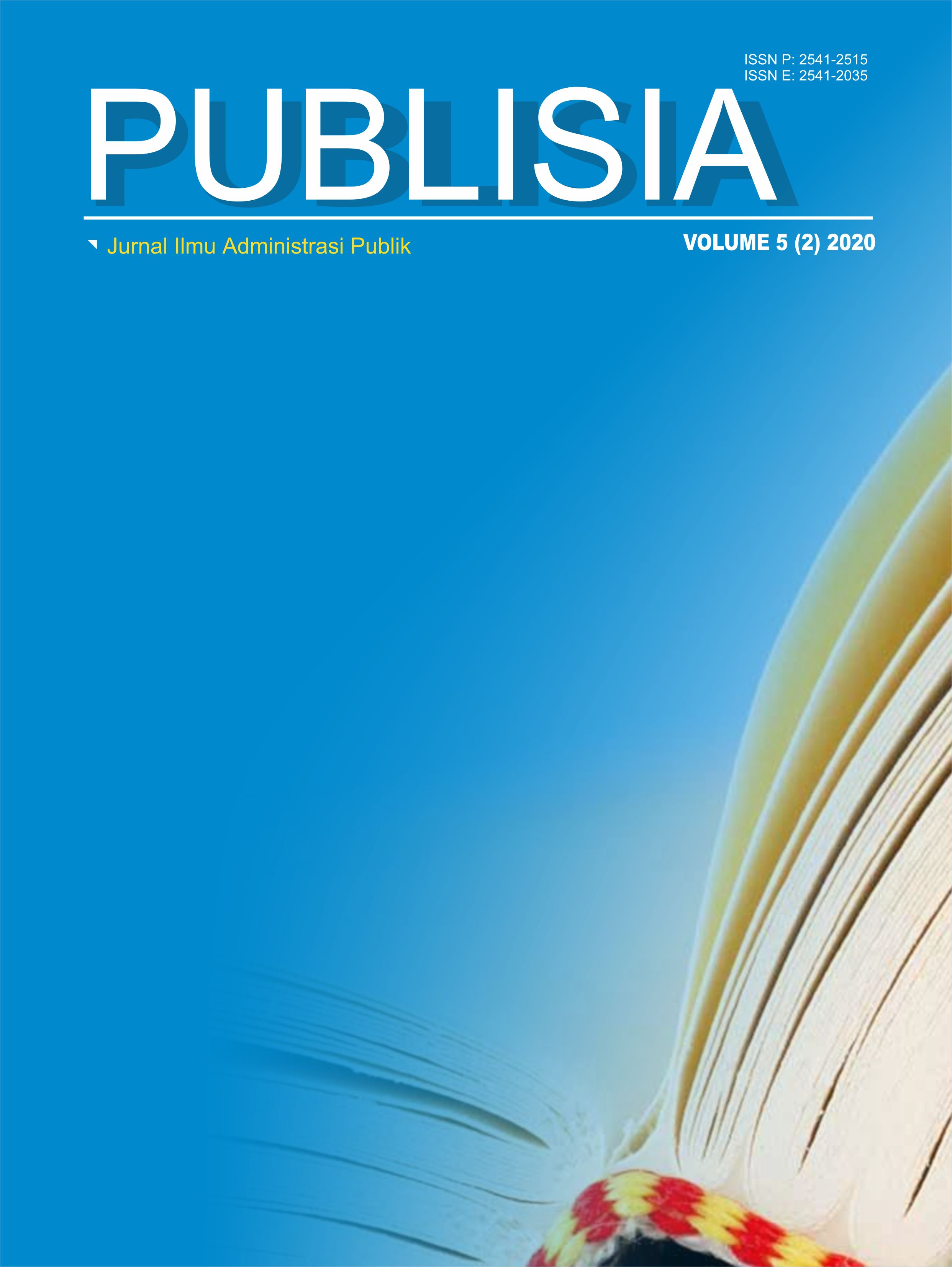Kegagalan partai politik baru di Provinsi Jambi 2019 dalam perspektif pelembagaan partai politik
DOI:
https://doi.org/10.26905/pjiap.v5i2.4309Keywords:
New Party, Elections, Party Institutionalization, Political FigureAbstract
The relationship between institutionalization of party and electoral is an important theme because the strength of institutionalization is demonstrated through party performance in elections. However, the tendency in strengthening party institutionalization can't be separated from the presence of inherent figures. Some literature highlights that institutionalization is a conflicting entity with the emergence of strong figures. This article specifically discusses and explains that the problems of institutionalization and figures can intertwine each other. Because the party's relationship with the electoral arena can't be separated, the need for figures as a reinforcing variable in terms of political contestation, especially new parties in Jambi Province. This article uses descriptive qualitative methods to analyze deeply the phenomena that occur by utilizing secondary and primary data from various informants. Various data is coded, analyzed interactively and confirmed its validity then presented systematically. The results showed that the institutionalization that had been designed by the new parties was not able to produce a significant vote gain. People is more familiar with figures within the party, thus voter preferences see figures more than parties. New parties need to increase their popularity by working with figures that are acceptable to the public. At the end, the author offers how figures can appear in new parties by carrying out a process of political recruitment that emphasizes the involvement of candidates who have the potential to compete in elections.Downloads
References
Aminuddin, M. F., & Ramadlan, M. F. (2015). Match-All Party: Pragmatisme Politik dan Munculnya Spesies Baru Partai Politik di Indonesia Pasca Pemilu 2009. Jurnal Politik , 1 (1), 40-74.
Bakar, A. (2013). Politik Dinasti dan Pelembagaan Partai Politik, pengalaman DPC PDIP dan keluarga Banteng di kepulauan selayar. Al-daulah , 112.
Budiatri, A. P. (2015). Pelembagaan Sistem Kepartaian Di Bawah Sistem Demokrasi Indonesia (1998 - Sekarang). Jurnal Penelitian Politik , 12 (1), 33-54.
Buehler, M., & Tan, P. (2007). Party-Candidate Relationships in Indonesian Local Politics: A Case Study of the 2005 Regional Elections in Gowa, South Sulawesi Province. Southeast Asia Program Publications at Cornell , 41-69.
Croissant, A., & Volkel, P. (2010). Party system types and party system institutionalization: Comparing new democracies in East and Southeast Asia. Party Politics , 21 (3), 1-31.
Gunther, R., & Diamond, L. (2001). Types and Functions of Parties. Dalam L. Diamond, & R. Gunther, Political Parties and Democracy (hal. 3-39). Baltimore, Maryland: The Johns Hopkins University Press.
Huntington, S. (1968). Political Order in Changing Societies. New Heaven, CT: Yale University Press.
Hutabarat, M. P. (2012). Fenomena "Orang Kuat Lokal" di Indonesia Era Desentralisasi, Studi Kasus Tentang Dinamika Kekuasaan Zulkifli Nurdin Di Jambi. Tesis , 48.
Key.Jr, V. O. (1964). Politics, and Pressure Groups. New York: Thomas Y. Crowell Company.
Levitsky, S. (1998). Institutionalization and Peronism: the concept, the case and the case for unpacking the concept. Party Politics , 4 (1), 77-92.
Mainwaring, S. P., & Scully, T. R. (1995). Introduction: Party Systems in Latin America. Dalam S. P. Mainwaring, & T. R. Scully, Building Democratic Institutions: Party Systems in Latin America (hal. 1-34). Stanford: Stanford University Press.
Mujani, S., Liddle, R. W., & Ambardi, K. (2012). Kuasa Rakyat, Analisis tentang perilaku memilih dalam pemilihan lesgislatif dan presiden Indonesia Pasca Orde Baru. Jakarta: Mizan.
Pamungkas, S. (2011). Partai Politik : Teori dan Praktik di Indonesia. Yogyakarta: Institute for democracy and welfarism.
Randall, V., & Svasand, L. (2002). Party Institutionalization in New Democracies. Party Politics , 8 (1), 5-29.
Ridha, M. (2016). Dilema Pelembagaan Partai Golongan Karya (Golkar) di Tingkat Lokal : Fenomena Politik Klan. Jurnal Ilmu Pemerintahan CosmoGov , 181.
Ridoi, M. (2016). Kekuatan Figur Dalam Partai Politik (Studi Terhadap Abdurrahman Wahid di Partai Kebangkitan Bangsa). Skripsi , 29.
Surbakti, R. (2003). Perkembangan Partai Politik di Indonesia. Indonesia in Transition : Work in Progress, Yogyakarta : Pustaka Pelajar , 51-66.
Taufik, M. (2014). Analisis Brand Positioning Partai Politik di Indonesia(Studi Kasus: Golkar, Demokrat, PDIP, PKS, Gerindra). Depok: Fakultas Ekonomi dan Bisnis Universitas Indonesia.
Tomsa, D. (2008). Party Politics and Democratization in Indonesia: Golkar in the post-Soeharto era. New York: Routledge.
Tomsa, D. (2012). What Type of Party? Southeast Asian Parties Between Clientelism and Electoralism. Dalam D. Tomsa, & A. Ufen, Party Politics in Southeast Asia: Clientelism and Electoral Competition Indonesia, Thailand and The Philippines (hal. 20-38). New York: Routledge.
Ufen, A. (2008). Political party and party system institutionalization in Southeast Asia: lessons for democratic consolidation in Indonesia, the Philippines and Thailand. The Pacific Review , 21 (3), 327-350.
Wallis, D. (2003). Democratizing a Hegemonic Regime: From Institutionalized Party to Institutionalized Party System in Mexico? Democratization , 10 (3), 15-38.
Downloads
Published
How to Cite
Issue
Section
License
Authors who publish with this journal agree to the following terms:
- Copyright of the published articles will be transferred to the journal as the publisher of the manuscripts. Therefore, the author confirms that the copyright has been managed by the journal.
- Publisher of Publisia: Jurnal Ilmu Administrasi Publik University of Merdeka Malang.
- The copyright follows Creative Commons Attribution and share a like License (CC BY SA): This license allows to Share and copy and redistribute the material in any medium or format, Adaptative remix, transform, and build upon the material, for any purpose, even commercially.







